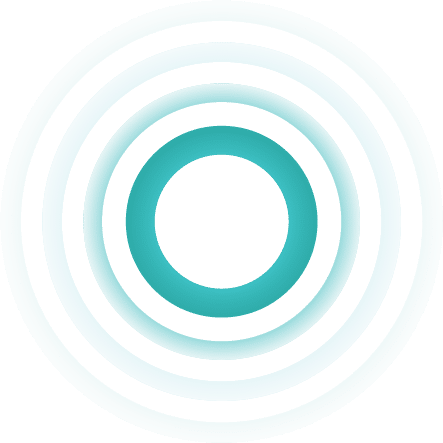Research shows that ADHD Coaching has a positive impact on the lives of children and teens (Ahman et al., 2017), college students (Prevatt & Yelland, 2015), and adults (Kubik, 2010). Gains in time management, motivation, self-esteem, and learning and study strategies have been documented, along with diminished feelings of distress. At Possibilities, we offer ADHD Coaching from regulated healthcare professionals to people of all ages. Our clients are courageous and inspiring as they move towards change. Here are some of their stories.
Max is 10 years old. He is shy and curious, and his face boasts a flash of freckles and a spontaneous grin. ADHD is not a new diagnosis for him; it’s been on his IEP forever, along with a significant Learning Disability in reading. Book reports are tough, graphic novels are easier, and drawing is a skill he practices daily.
Emily is 16. Her vintage-inspired glasses make her look smart, and she is. Early on she was identified at school as being gifted. Emily works harder than her classmates to achieve solid grades, and has big dreams of becoming an architect or doctor. Emily’s ADD was caught somewhat late in the game—just last year. Gritty persistence that yielded decent grades seemed inconsistent with attention challenges. So, ADHD was never investigated, until work became harder to complete as she moved through high school. Emily is now officially gifted with ADD, what some call “twice exceptional.” Emily feels doubly anxious about what this dual exceptionality means for her dreams. Right now she wants to stay organized and on top of her work without burning out or being consumed by anxiety.
Jonathon is a 40 year-old father. He is athletic and smart with a quick-witted humour that puts friends and colleagues at ease. Jonathan’s son was just diagnosed with ADHD. When Jonathon learned that ADHD runs in families, he began to question whether he might have ADHD, too. He thought about the countless job opportunities his friends encouraged him to consider. But failed attempts at tasks that made too many demands too many times left him apprehensive and stagnant, keeping him in his current job for over a decade. Jonathan feels underemployed intellectually, but knows from experience that advancing into higher-level work with greater demands will likely result in failure at best, and job loss at worst.
The names have been changed, but their stories and their struggles are common. Max, Emily, and Jonathon have all been diagnosed with an Attention Deficit Disorder. All of them are intelligent and tell compelling stories in conversation. And all of them leave us rooting for them long after they have left our office.
Max, Emily, and Jonathon—and so many others like them—have chosen to try ADHD Coaching as a way to stay organized, get tasks done, and move forward towards bigger challenges with less fear and more fortitude. In ADD and ADHD, differences in neural circuits and neurochemistry make it tough for the brain to stay focussed, suppress distractions, break goals into smaller, sequenced tasks, and persist until work is done.

ADHD Coaching is a drug-free approach to supporting the brain with these challenges. At Possibilities our ADHD Coaches are licensed healthcare providers who understand the neuroscience of Attention Deficit Disorders. That means they understand the strengths of the ADHD brain—including its capacity for infectious enthusiasm and hyperfocus—as well as it challenges, like losing track of time and information, struggling to see how big goals can be fragmented into more do-able ones, and staying motivated throughout the glory and grind of a job well done.
Max, Emily, and Jonathon are thriving in ADHD Coaching. Their coaches are well-tuned to the needs that ADHD and ADD present, including the daily barriers that threaten their clients’ success. Despite what is common in their diagnoses, Max, Emily and Jonathon also present with their own likes, dislikes, strengths and talents. This individuality must be respected to boost their coaching success.
Max’s family chose to enrol him in our ADHD Kid Coaching program called Doodle! Do! Done!. With a blank comic book, a favourite marker, and his coach’s help, Max breaks his weekly chores down into a series of pictures. This approach is consistent with his love of drawing and keeps him engaged. At the end of a coaching session, his comic book looks like a graphic novel directing him through tasks he needs to accomplish in the coming week. He also doodles confidence-gobbling monsters and talks back at them—changing the stories he carries in his head about who’s boss when it comes to getting stuff done and managing big emotions.
Emily also likes to draw, and fills a journal during her coaching sessions with a combination of written lists, quick sketches, and fancy lettering. Between sessions she keeps track of agreed-upon goals and the steps she takes to get there with notes and sketches embellished with coloured markers and stickers. Her coach adds Cognitive Behaviour Therapy (CBT) to their coaching sessions. Emily’s anxiety can thwart her thoughts, actions, and feelings. In Coaching, with an added CBT lens, Emily has learned that what she thinks, feels, and does, all need to be aligned to boost her confidence, reduce her worry, and move her towards completing tasks without concerns of perfectionism and failure.
Jonathan feels most confident speaking in his ADHD Coaching sessions. He and his coach share note-taking responsibilities as they work through big goals, smaller tasks, and timelines. Together they anticipate barriers in the coming week and problem-solve ways to work around them. Jonathan was skeptical about ADHD Coaching at first. He had tried Corporate Coaching in the past, but the course moved too quickly and there were never concessions made for students who needed instructions repeated, ideas broken down, or safeguards built into each day to anticipate the impact of smaller, personal challenges. How could Jonathon implement strategies to keep a corporate team on track when he struggled with his own time management? Coaching based on the science of ADHD has been more helpful to him, and he looks forward to applying for higher-level jobs with the weekly support of his coach and the new skills he has acquired.
Maybe your story, or the story of your child, can be found somewhere in here. Even with differences, there are bound to be points of similarity—in the challenges and the frustrations, and in that ever-present feeling that goals can be reached with tailored conditions and supports. If you are interested in our ADHD Coaching programs for children, teens and adults, do reach out. Change is possible.











